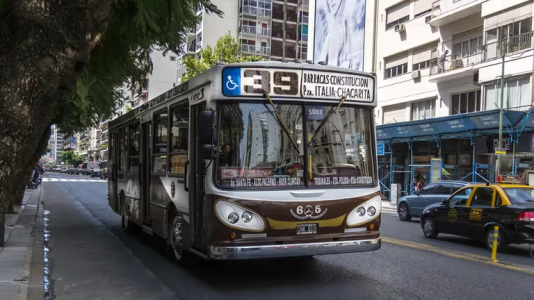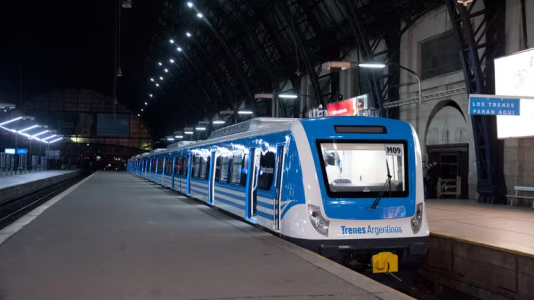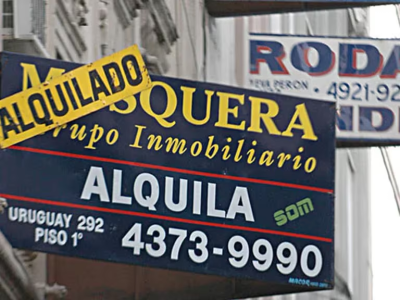All the Answers
Well-known member
One by one, all the increases that arrive in May - Infobae

Source:
April 30, 2024
From public transportation to rent, fuel and education, these adjustments put additional pressure on the domestic economy. Below, we break down each of the planned increases and how they will affect your pocket.

The bus was making its way when the woman started having contractions.
The fifth month of the year brings with it a wave of increases in various sectors that will directly impact the Argentine economy. This set of increases, which includes transportation, fuel, basic services and rents, is presented as an additional challenge in a context of the Government's search for inflation control and maintenance of the fiscal surplus. Here, a detailed analysis of the increases that will be implemented in May and how they will be applied.
Argentina's inflationary context has shown signs of slowing in March, with a rate of 11%, but it is still high when considering the year-on-year trajectory. So far this year, accumulated inflation continues to challenge the economic goals of the government, which has promised to progressively reduce these rates. The persistence of high levels of year-on-year inflation, which exceed 287% , highlights the complexity of the economic environment and the constant pressure on the purchasing power of citizens.
The increases scheduled for May will directly affect essential services such as fuel and transportation, but there will also be considerable increases in rent and utility costs. For example, gas and electricity rates are expected to undergo significant adjustments due to seasonal increases and the need to align domestic prices with generation costs. Likewise, rents will suffer increases of around 221%, which reflects not only past inflation but also regulatory changes in the real estate market.
Subway
The Buenos Aires subway will see a significant increase in its rate, applied in three sections during May and June:- May 1: the fare will rise from $125 to $547.
- Mid-May: Another adjustment will be made until reaching $667.
- June 1: The ticket will reach $757.

It is expected that in mid-May the subway fare will reach 667 pesosTrains
In the case of trains in the Buenos Aires Metropolitan Area (AMBA), tickets will experience an increase of 53.85% distributed as follows:
- Section from 0 to 12 kilometers: will go from $130 to $200.
- From 12 to 24 kilometers: from $169 to $260.
- More than 24 kilometers: from $208 to $320.

The train will increase 53.85% in May
Naftas y gasoil
The month of May will also see increases in fuel prices due to tax adjustments and other economic factors:- Tax on Liquid Fuels (ICL): increase of $61.82 per liter of gasoline and $42.07 per diesel.
- Estimated percentage impact: An approximate increase of 8% in final prices is estimated, with specific variations by fuel type: Super gasoline: 7.3% increase. Premium gasoline: 5.98%. Diesel: 4.7%.

A new increase in pumps is expected after the change of month (Illustrative image Infobae)
Internet, cable and telephone
The rates for these services will undergo an adjustment that will range between 10% and 20% depending on the provider and the type of service contracted. This increase will affect both internet and mobile phone and cable services.Rentals
Rents are not exempt from increases. With the repeal of the Rental Law and the change in regulations:- Increase according to ICL: rents that were under the previous law will suffer an increase of 221%.
- New contracts: for those signed after the repeal, the adjustment will be according to the market and the particular conditions of each contract.

Contracts made during the validity of the Rental Law are still adjusted by ICL
Buenos Aires private schools
Private schools in the province of Buenos Aires will apply a 6.7% increase in their fees, with variations depending on the educational level and state subsidy:- Garden with 100% contribution: up to $17,500.
- Secondary with 40% subsidy: up to $102,500.
Electricity and gas
Users of these services will see significant increases due to adjustments in production costs and seasonal changes that increase demand:- Gas: Between May and September, the price of gas per million BTU will rise from USD 2.94 to USD 4.49.
- Electricity: a doubling of the cost per MWh is anticipated during the winter, with monthly adjustments based on a formula that includes several economic indicators.


